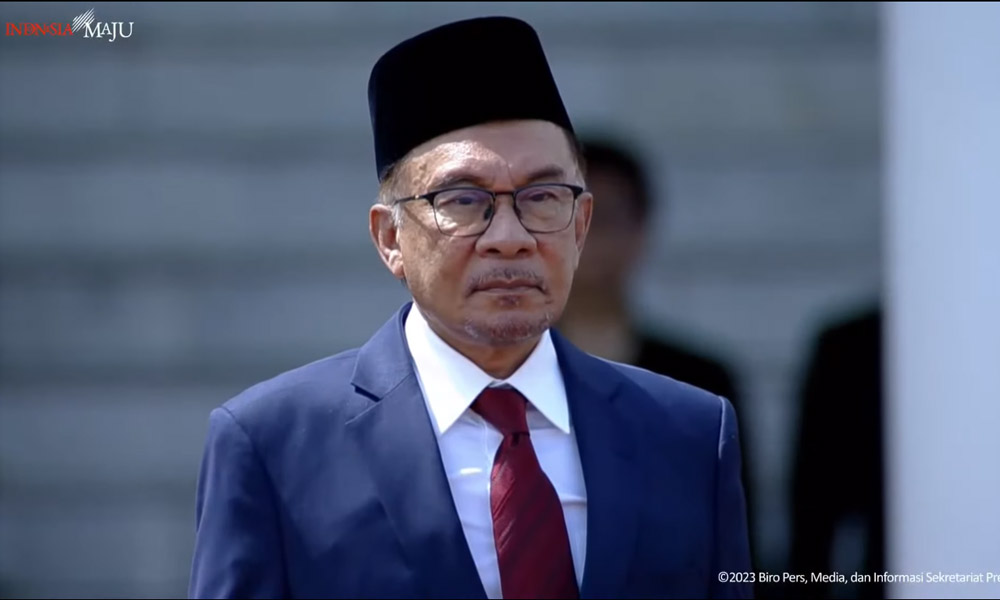LETTER | Inspiring a heightened state of arousal, a young Barack Obama would preach to the American people from the presidential pulpit in 2008—deemed by many to be the country’s newfound saviour upon his election victory—promising to spearhead the “American Dream”.
His speech was welcomed with thunderous applause, heartfelt tears and exuberant cheer. The ecstasy around this highly idealised national ethos was, however, short-lived.
The promise of equality of opportunity, upward social mobility and prosperity for all Americans was eclipsed by the Great Recession leading many losing faith in the hope of there being an “American Dream”.
With the ever-growing possibility of a recession this year, the threat of increasing social polarisation and political turmoil—Malaysia’s newly minted national slogan “Malaysia Madani” (Civilised Malaysia), launched by National Unity Minister Aaron Ago Dagang having taken inspiration from the prime minister’s reformist agenda, faces many challenges in presenting itself as the “Malaysian Dream”, promising a prosperous Malaysia as it hopes to secure the confidence of the people.
The slogan “Malaysia Madani” was very recently consecrated as the government’s national philosophy and vision aimed at facilitating progress towards the heights of civilisation—encapsulating efforts to steer the country’s trajectory, which has been historically put off course, through the implementation of several initiatives.
This rather reformist-sounding theme is emblematic of the prime minister’s well-known political brand.

Anwar Ibrahim has previously, in his diagnosis of the country’s developmental condition, made clear that issues ranging from rampant corruption, governance of censorship, financial mismanagement and social disunity have affected the country.
The problems are deeply entrenched in the Malaysian cultural psyche, the roots of which require immediate uprooting lest the “invasive weeds” of economic, political and social stagnation ravage the national garden, bringing it to a state beyond resuscitation.
It appears that the government’s strategy, therefore, is to introduce programmes that influence all areas of Malaysian life—from the political to the economic and social levels in order to grease the gears of the country’s clockwork, to ensure not only that it continues to turn but is primed to take on ambitious mobilisation.
In the book “Developing a Civilized Nation: Vision and Framework of Reform Policies” recently published by Anwar in Malay, which also inspired the national slogan, he describes the “Malaysia Madani” endeavour as one that is “integrated and holistic”, aimed at “rectifying historical mistakes by engaging with the people for feedback” in order to “lay the foundation of a civilised, skilled and inclusive society”.
The new Malaysian Dream—the highest ideal the nation has imaged for itself—is not the promise of bare governance, it is the promise of governance that aspires to the greatest heights in order to revolutionise the nation into a political, economic and social powerhouse by democratising the participation of Malaysians, regardless of race, religion and political affiliation in the cooperation with the country’s leadership.
This comprehensive, all-inclusive narrative hopes to emphasise the importance of interdependence, the role that the people and leadership play in alleviating the country of its historical wounds, ushering in the appropriate remedies so as to inspire confidence in the nation’s institutions.
The “Malaysia Madani” concept is one of many in a long line of national narratives—ranging from “Bangsa Malaysia” to “Keluarga Malaysia”.
Challenges facing Malaysia
The shelf life, with regard to the perception of the Malaysian people, of these national slogans has tended towards progressive decline and expiration—eventually falling prey to total amnesia.
If the “Malaysia Madani” concept wishes to be unique, impactful and long-lasting in the minds of Malaysians, it must demonstrate its proof of concept by successfully thwarting threats to the country’s hope of prosperity.
Speculations around a great economic recession, internal political disputes and social disease appear to be the coming litmus test of the slogan’s legitimacy.
If proven successful, it could serve as an unprecedented move in Malaysian history—restoring confidence to all Malaysians,
Hence, government and the people must summon all of their strength to fight to keep the Malaysian Dream alive and well.
The views expressed here are those of the author/contributor and do not necessarily represent the views of Malaysiakini.

